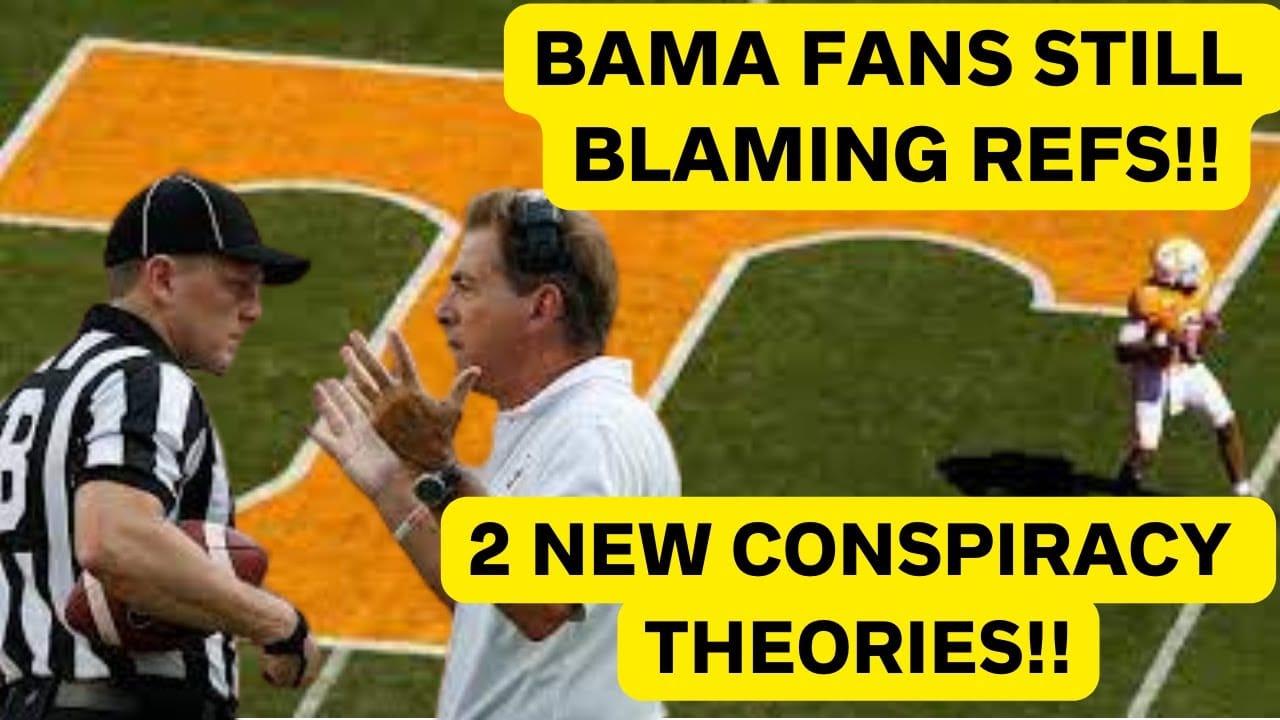It's Always the Refs Fault

WEDNESDAY- A tale as old as time: the officials are to blame for a team losing, not the performance of the team itself. The crutch leaned on time and time again by fan's, and the bigger the stage, the more weight it has to hold up. Those cries quickly turn to screams when a team that wins as much as Kansas City is the beneficiary of such accusations.
This brings a couple of questions to my mind: should we ever blame officials for a team losing? And why do fans always jump at the officials when assessing blame for a loss? Simple yet complex questions to answer, so lets start with the second.
The simplest way to explain why fans consistently push blame onto the officials is it eliminates accountability. A theme that has become common throughout society. Now the team itself hasn't done anything wrong, it was someone else. This overlaps with the rabbit hole I have planned for Friday, which will dig into why fans say "we" when talking about their favorite team. Sticking to the topic at hand though, when fans put emotional investment into watching a team, specifically the one they like, it feels personal when they lose. Hence why so many fans tend to disassociate with their team and say "they" when it starts regularly losing. Rather than looking for where their own team went wrong, they focus on the borderline call that either was or wasn't made. That whole play is responsible for the team losing, not possibly the other 20-30 or more other plays where mistakes where made by their own team.
Think about our own lives. We show up five, maybe ten minutes late for an eight-hour work shift, a superior catches us and reports us for being late, and we get disciplined. What does our mind typically jump to first? How the superior who reported us isn't cool for not letting us by for being barely late for a long day. What we typically don't think about, but hopefully do more and more as time goes on, is how we didn't get gas the night before, so we had to fill up in the morning; or we went to bed later than we should have, and had to hit snooze a couple of times in the morning, and our routine was thrown off; or we didn't get our stuff together the night before and couldn't track something we needed down in the morning, causing us to leave later than usual. Instead of thinking of ways to address all these little things that we can control, and would eliminate the problem in the first place, we blame the person whose actions we can't control. Simply put, fans blame the ref because it's the easiest knee-jerk reaction.
Whether or not fans should blame officials entails a more complex answer. If you were to ask me: do officials ever make questionable calls on plays that can dramatically shift the potential outcome of that game? The answer is a resounding yes, 100%. An undeniable yes. On the contrary, does that mean the refs should ever be blamed for a team losing? No, absolutely not. In fact, getting down to one specific reason/person for a team losing is just about impossible. Let's count the total number of responsibilities carried out by players on one team throughout an NFL game. There are eleven guys on the field for each play, and typically anywhere from 120-140 total plays that are ran in NFL games. For sake of ease, let's say there are 130 total plays ran. Multiply that number by 11 and we get to 1, 430 total responsibilities being carried out by players in a single-game. I guarantee there are enough mistakes being made, even in a good overall performance, that call's from the ref start to lose their significance.
Maybe you're screaming through your screen at me right now, and I get it. I'm a fan myself, and would be lying if I said I had never used the ref argument to justify why my team lost. As a Michigan fan, the 2016 matchup they had versus Ohio State comes to mind, with the infamous JT Barrett spot on fourth-down in double-overtime. The days quickly began to change and so did my point of view on things. Yes, if the refs had spotted him short the game would have been over, we would have won, and I would have been thrilled. It's also true that if Michigan didn't allow a free-rusher on a play action pass attempt from their own endzone, forcing an underthrown pass from quarterback Wilton Speight, resulting in a pick-six, Michigan would have been leading 10-0 at halftime, not 10-7. If Speight had not fumbled a snap a couple yards from the endzone in the second-half, Michigan would have been up 24-0, instead of handing Ohio State momentum while down a much more manageable 17-7. Then the Buckeye's ten unanswered points in the fourth quarter would have just been a little clean up on the scoreboard of a dominant 24-10 Michigan victory, as opposed to the comeback the would setup one of the more controversial moments in the history of the rivalry.
Point being, there is always a bigger picture, and simplifying games down to one singular play, person, or thing is ridiculous. Besides, it's always better to focus on what is in our own control anyway. Staying with Michigan as an example, back in 2016 when the spot controversy happened, Jim Harbaugh ranted about the call and how the officials messed up. This season, Harbaugh was suspended for six games of the season after recruiting and sign-stealing controversies, and while there was certainly uproar from the fan base, there wasn't much complaining from Harbaugh himself, who instead focused on what he could do to make sure his players and staff where in the best position possible. This change of attitude is one of the biggest reasons for the success of the Michigan football program over the last three seasons.
It ties into a misunderstanding of happiness. When we think of happiness, we think about what we need right now, often mistaking temporary pleasures for happiness. True happiness however, comes from seeing ourselves move towards an objective or a goal. When we focus on the obstacles in the way it becomes hard to see ourselves reaching our objectives. Shifting our focus to the resources and blessings we have on the other hand, allows us to see a path to our destination.
I can't emphasize enough how much I understand the want to blame the refs for our favorite team's downfall. At the end of the day however, it's an inability to accept the fact that our team wasn't able to execute at a good enough level, given the circumstances, to win the game. As a fan and even a player or coach, that's how you have to look at the refs, like circumstances surrounding a game. Similar to the weather, it's something you need to have multiple responses too. As weather or officiating change, so do elements of your gameplan. Refs aren't always fair, sports aren't fair, and life sometimes isn't fair, we can either stare at the obstacles in the way and get mad, or become so resilient we don't even notice they're there.
